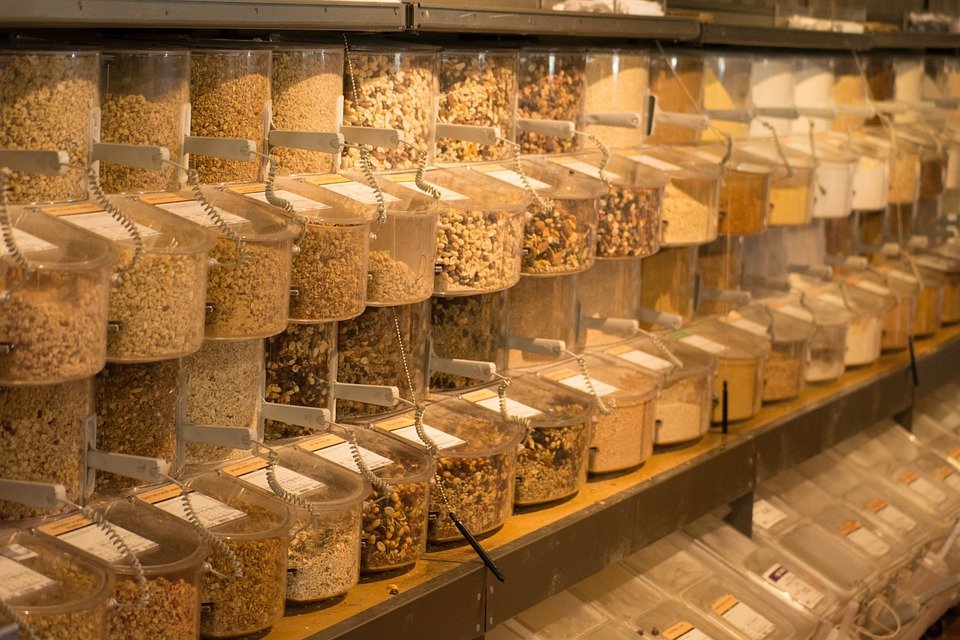In recent years, there has been a growing concern about the environmental impact of our food choices. As more people become aware of the negative effects of conventional farming practices on the environment, there has been a shift towards organic and sustainable options. Wholefoods, in particular, have gained popularity as a healthier and more environmentally friendly choice. In this article, we will explore the environmental impact of wholefoods and why choosing organic matters.
Wholefoods are foods that are minimally processed and free from artificial additives, preservatives, and other chemicals. They are typically organic, meaning they are grown without the use of synthetic pesticides, fertilizers, or genetically modified organisms (GMOs). Organic farming practices focus on maintaining soil health, protecting biodiversity, and reducing pollution, making them more sustainable and environmentally friendly than conventional farming methods.
One of the main reasons why choosing organic wholefoods is important for the environment is the impact of conventional farming practices on soil health. Conventional farming relies heavily on synthetic pesticides and fertilizers, which can deplete the soil of nutrients and disrupt the delicate balance of microorganisms that are essential for healthy soil. This can lead to soil erosion, loss of fertility, and contamination of water sources with harmful chemicals.
In contrast, organic farming practices focus on building and maintaining soil health through the use of natural fertilizers, crop rotation, and cover cropping. These practices help to improve soil structure, retain moisture, and support beneficial microorganisms, leading to healthier soil that is more resilient to erosion and drought. Healthy soil also acts as a carbon sink, sequestering carbon dioxide from the atmosphere and helping to mitigate climate change.
Another important environmental benefit of choosing organic wholefoods is the impact on water quality. Conventional farming practices can lead to water pollution through the runoff of synthetic pesticides and fertilizers into rivers, lakes, and oceans. This pollution can harm aquatic ecosystems, contaminate drinking water sources, and contribute to the formation of dead zones in the ocean where marine life cannot survive.
Organic farming practices, on the other hand, reduce the risk of water pollution by using natural fertilizers and pest control methods that do not contain harmful chemicals. Organic farmers also prioritize water conservation through practices such as drip irrigation, mulching, and rainwater harvesting. By choosing organic wholefoods, consumers can help to protect water quality and preserve aquatic ecosystems for future generations.
In addition to soil health and water quality, choosing organic wholefoods also has a positive impact on biodiversity. Conventional farming practices often rely on monocultures, where a single crop is grown over a large area, leading to a loss of biodiversity and an increase in pests and diseases. Organic farming practices, on the other hand, encourage crop diversity, companion planting, and the preservation of natural habitats to support a wide range of plant and animal species.
By choosing organic wholefoods, consumers can support farmers who are committed to protecting biodiversity and promoting sustainable agriculture. Organic farms provide important habitats for pollinators, birds, and other wildlife, helping to maintain healthy ecosystems and prevent the loss of species due to habitat destruction and climate change. Supporting organic farming also helps to preserve genetic diversity in crops, making our food system more resilient to environmental challenges such as pests, diseases, and climate variability.
In conclusion, the environmental impact of wholefoods is significant, and choosing organic options can make a positive difference for the planet. By supporting organic farming practices, consumers can help to protect soil health, water quality, and biodiversity, while also reducing their carbon footprint and supporting sustainable agriculture. As more people become aware of the benefits of organic wholefoods, we can work together to create a more sustainable food system that nourishes both people and the planet.
FAQs:
Q: Are organic wholefoods more expensive than conventional options?
A: Organic wholefoods can be more expensive than conventional options due to the higher cost of organic farming practices and certification. However, the long-term benefits to the environment and human health make organic wholefoods a worthwhile investment for many consumers.
Q: How can I find organic wholefoods in my area?
A: Organic wholefoods can be found at natural food stores, farmers markets, and online retailers that specialize in organic products. You can also look for the USDA Organic seal on food packaging to ensure that the product meets organic standards.
Q: Can organic farming feed the world?
A: Organic farming has the potential to feed the world by promoting sustainable agriculture practices, increasing food security, and reducing the environmental impact of conventional farming. By supporting organic wholefoods, consumers can help to create a more resilient and equitable food system for all.
Q: What are the benefits of choosing organic wholefoods for my health?
A: Organic wholefoods are free from synthetic pesticides, fertilizers, and GMOs, making them a healthier choice for you and your family. Organic foods are also higher in nutrients and antioxidants, and have been shown to reduce the risk of chronic diseases such as cancer, heart disease, and diabetes.


